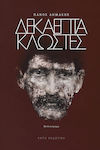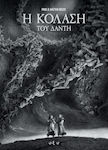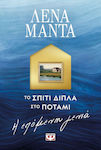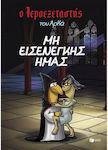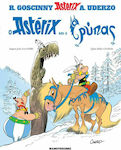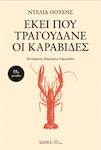Skroutz Buyers Protection
Τρεις μεσαιωνικές μελέτεςCode: 15320491
- Author: Εμμανουήλ Ροΐδης
- Publisher: Patakis
- Μορφή: Soft Cover
- Κωδικός ISBN-13: 9789601675176
Εμμανουήλ Ροΐδης
Buy together
Similar products
 Top rated
Top ratedBiographies & Memoirs
Καλησπέρα και Καλή Βραδιά, The Biography of Vasilis Karras
Ad from SilverProductsAdded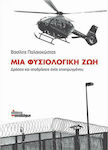


Biographies & Memoirs
Ένα Σκοτεινό Δωμάτιο 1967-1974, Ioannidis and the Cyprus Trap - Oil in the Aegean - The Role of the Americans
Ad from E-myratAdded
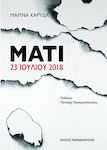
 Top rated
Top rated

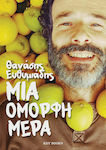
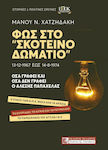
 Top rated
Top rated
All shops
Prices are calculated for:Malta, Other Payment Options
- 6,07 €
- 6,60 €
- 6,60 €
- 7,04 €
- 7,90 €
- 7,47 €
- 8,80 €
- 8,80 €
- 6,16 €
- 7,83 €
- 7,48 €
Description
The young Roïdis - who would later become the most important Greek author - decided to study the Western Middle Ages, naturally giving us "Queen Joanna", but also other medieval texts. While "Queen Joanna" is well-known, the short studies included in this book have little circulation today.
The essay "The Witches of the Middle Ages" (1868) is the most important feminist text in the Greek language, at least as far as I know. Through the defense of witches, this author, who is otherwise misogynistic(?), defends not only science, but also the female gender and motherhood. The study "The Feast of the Ass in the Middle Ages" (1869) is a text that starts with the relationship between environment and national character - according to the beliefs of the time - continues with the need to escape from excessive religious seriousness, and culminates in a grotesque narrative direction. "The Vampires of the Middle Ages" (1869) begins with the inclination of ignorant people towards the supernatural and depicts the negative consequences that the encounter of this inclination with the Christian church had on humanity.
The edition is "bilingual": Roïdis' texts are on the right and the transcription in Modern Greek is on the left (reversed from the usual). As is known, the great Syrian wrote in Katharevousa, supporting Demotic Greek. With these transcriptions in Demotic Greek, I support his Katharevousa. Furthermore, in order to reach a wider readership, I chose not to include an Introduction or even a Preface. This absence is partially compensated by the Selected Works.
D.F.
Specifications
- Language
- Greek
- Format
- Soft Cover
Important information
Specifications are collected from official manufacturer websites. Please verify the specifications before proceeding with your final purchase. If you notice any problem you can report it here.









































